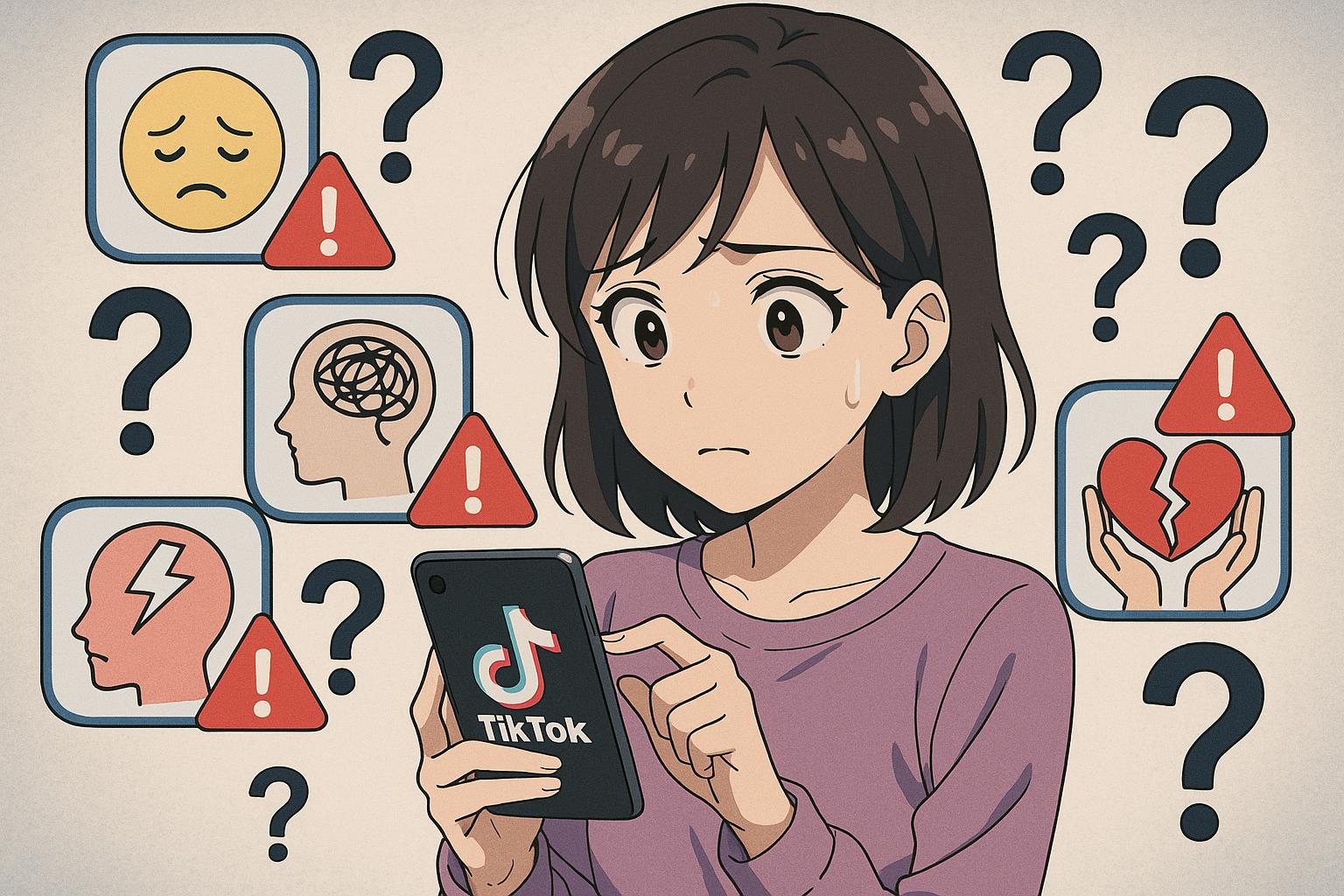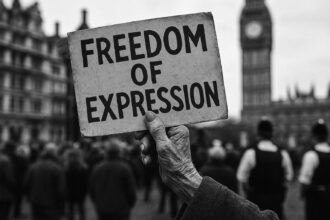New research reveals that over 50% of leading TikTok videos on mental health contain misleading advice and dubious treatments, raising concerns for vulnerable young audiences who rely on social media for support.
Recent research has shed light on the alarming prevalence of misinformation in mental health content shared on social media, particularly TikTok. As more individuals turn to these platforms for mental health support, the need for reliable information has never been more critical. A study has revealed that over half of the top 100 TikTok videos related to mental health contain misleading information. This concerning trend highlights the urgent need for users to approach such content with caution.
The study, which has been reported in various outlets, indicates that many influencers misuse therapeutic language and promote dubious ‘quick fix’ solutions. Commonly encountered advice includes the peculiar suggestion of eating an orange in the shower to alleviate anxiety, as well as endorsements of supplements like saffron and magnesium glycinate, whose effectiveness remains unsupported by substantial evidence. Furthermore, methods advertised as capable of healing trauma within an hour and the mischaracterisation of normal emotional experiences as symptoms of borderline personality disorder or trauma have become prevalent. These findings echo a broader concern among health professionals regarding the quality of mental health information circulating on social media platforms.
Moreover, additional studies have corroborated these findings, revealing a significant portion of the content discussing Cognitive Behavioral Therapy (CBT) and Attention-Deficit/Hyperactivity Disorder (ADHD) is riddled with inaccuracies. For instance, research published in the Journal of Medical Internet Research highlighted that many videos misrepresent CBT principles. Similarly, a survey concerning ADHD videos found that many were uploaded by individuals lacking relevant qualifications, which raises further questions about the reliability of the information being disseminated.
The ramifications of this misinformation are particularly concerning for young people who actively seek out mental health resources online. A survey focused on TikTok users indicated that a large majority of young women acknowledged encountering misleading health information on the platform. This trend contributes to the ongoing mental health crisis, as individuals may turn to unverified sources instead of seeking professional guidance, ultimately perpetuating stigma and misrepresentation.
As the popularity of TikTok and similar platforms continues to grow, so does the responsibility of both users and content creators. Mental health experts emphasise the need for critical evaluation of the information consumed on these platforms, urging users to seek verification from qualified professionals rather than relying solely on influencers without appropriate training. Whether through misleading advice or the propagation of harmful stereotypes, the implications of this misinformation extend beyond individual understanding, potentially shaping societal attitudes towards mental health treatment and awareness.
In an era defined by digital interaction, safeguarding the mental health of individuals, especially vulnerable populations, demands a concerted effort to ensure that accurate and evidence-based information prevails over sensationalised or misleading content.
 Reference Map:
Reference Map:
Source: Noah Wire Services
- https://www.madinamerica.com/2025/06/more-than-half-of-top-100-mental-health-tiktoks-contain-misinformation-study-finds/ – Please view link – unable to able to access data
- https://www.theguardian.com/society/2025/jun/02/mental-health-misinformation-tiktok-study – A recent study highlighted by The Guardian reveals that over half of the top 100 mental health-related TikTok videos contain misinformation. The study found that influencers often misuse therapeutic language, promote ‘quick fix’ solutions, and make false claims. Common examples include advice like eating an orange in the shower to reduce anxiety, endorsing supplements with limited evidence for alleviating anxiety such as saffron, magnesium glycinate, and holy basil, suggesting methods to heal trauma within an hour, and misinterpreting normal emotional experiences as signs of borderline personality disorder or abuse.
- https://www.jmir.org/2023/1/e45571 – Published in the Journal of Medical Internet Research, this study analysed TikTok videos discussing Cognitive Behavioral Therapy (CBT). The researchers found that a significant portion of the content presented inaccurate or misleading information about CBT, highlighting the need for critical evaluation of mental health content on social media platforms.
- https://www.ncbi.nlm.nih.gov/pmc/articles/PMC9659797/ – This study examined popular TikTok videos about Attention-Deficit/Hyperactivity Disorder (ADHD) and found that approximately half of the videos were misleading. The majority of these misleading videos were uploaded by non-healthcare professionals, underscoring the prevalence of misinformation regarding ADHD on the platform.
- https://www.prweek.com/article/1807861/nearly-84-mental-health-videos-tiktok-misleading-study – A study highlighted by PR Week found that nearly 84% of mental health-related TikTok videos are misleading. The research indicates that a significant majority of these videos contain inaccurate or potentially harmful advice, often created by individuals without relevant qualifications or medical training.
- https://pubmed.ncbi.nlm.nih.gov/38772020/ – This survey study published on PubMed investigated the prevalence of health information and misinformation on TikTok among young women in the United States. The findings revealed that a substantial majority of young women who use TikTok have encountered health information on the platform, with a significant portion acknowledging the presence of misinformation.
- https://link.springer.com/article/10.1007/s12144-025-07716-z – Published in Current Psychology, this study explored the effects of TikTok-style videos on mental health stigma, self-pathologising, and help-seeking behaviours. The findings suggest that while these videos may normalise mental health topics, they may not effectively encourage positive attitudes towards seeking professional treatment.













